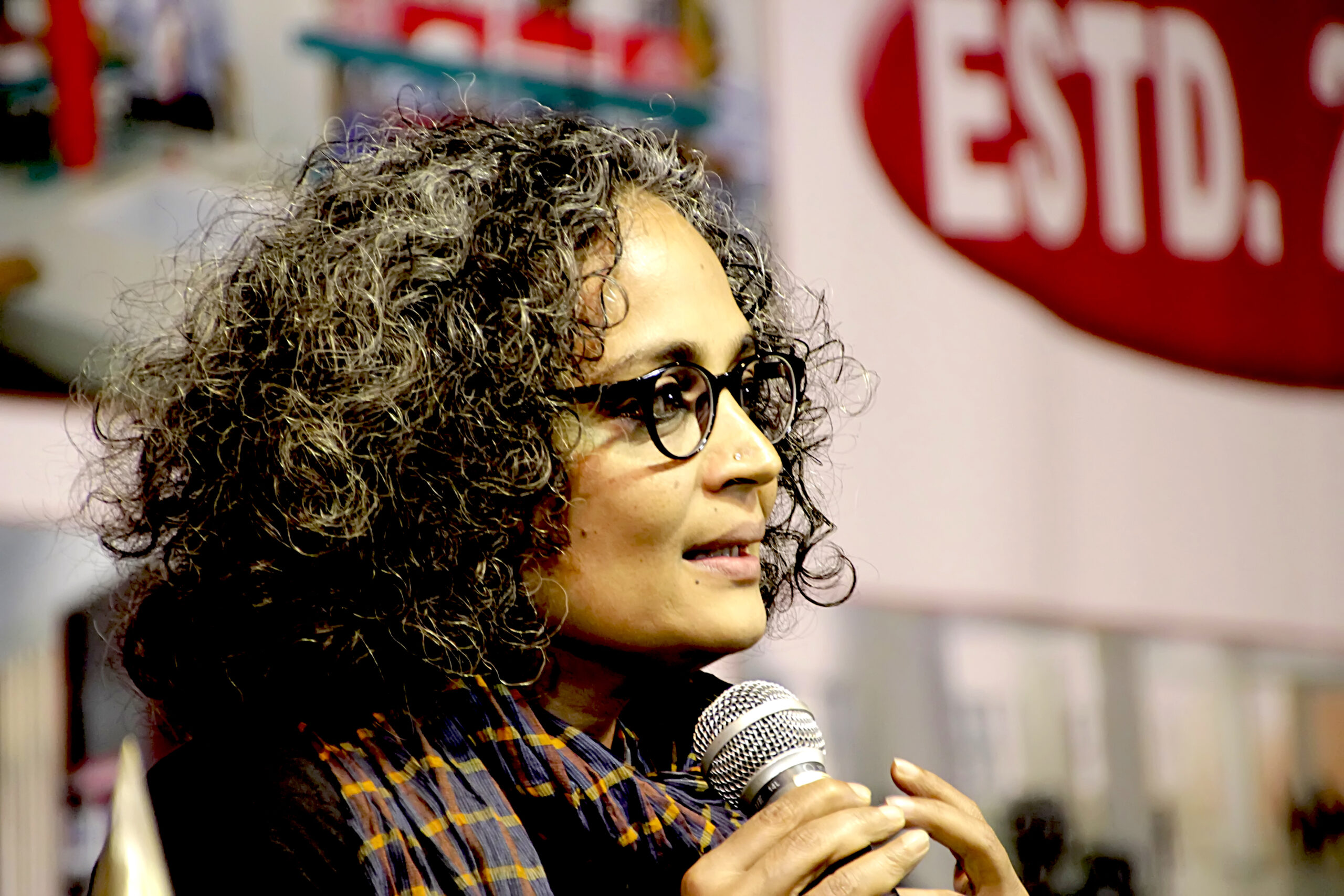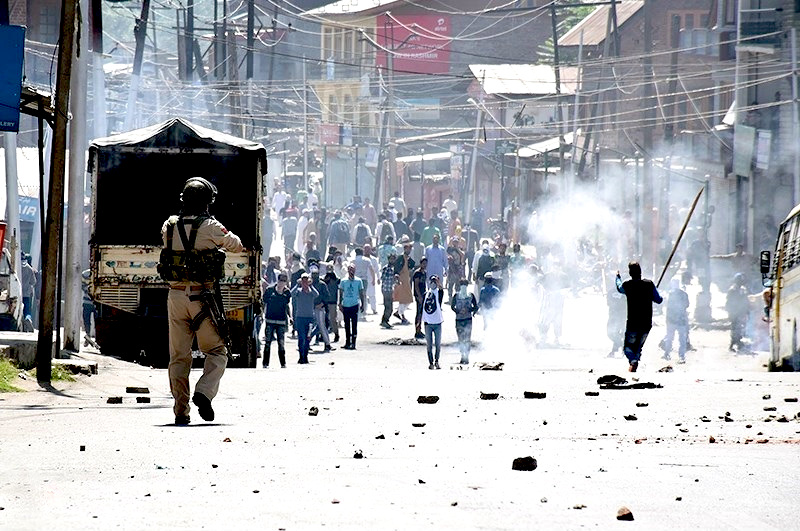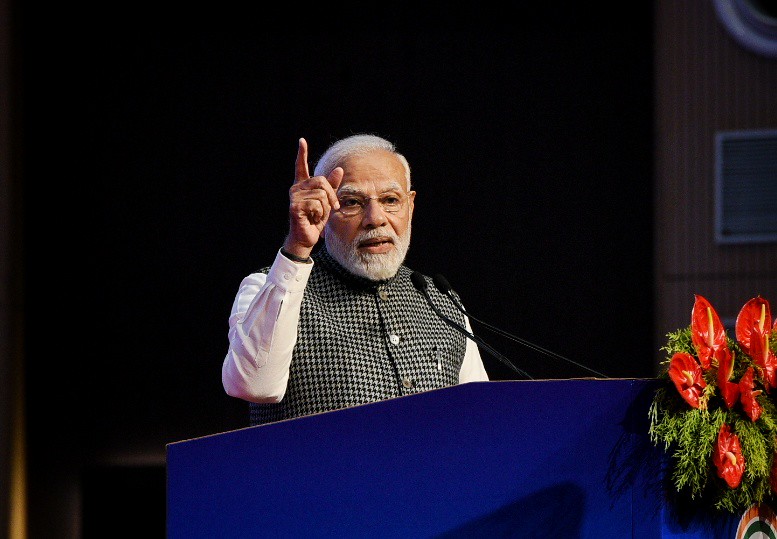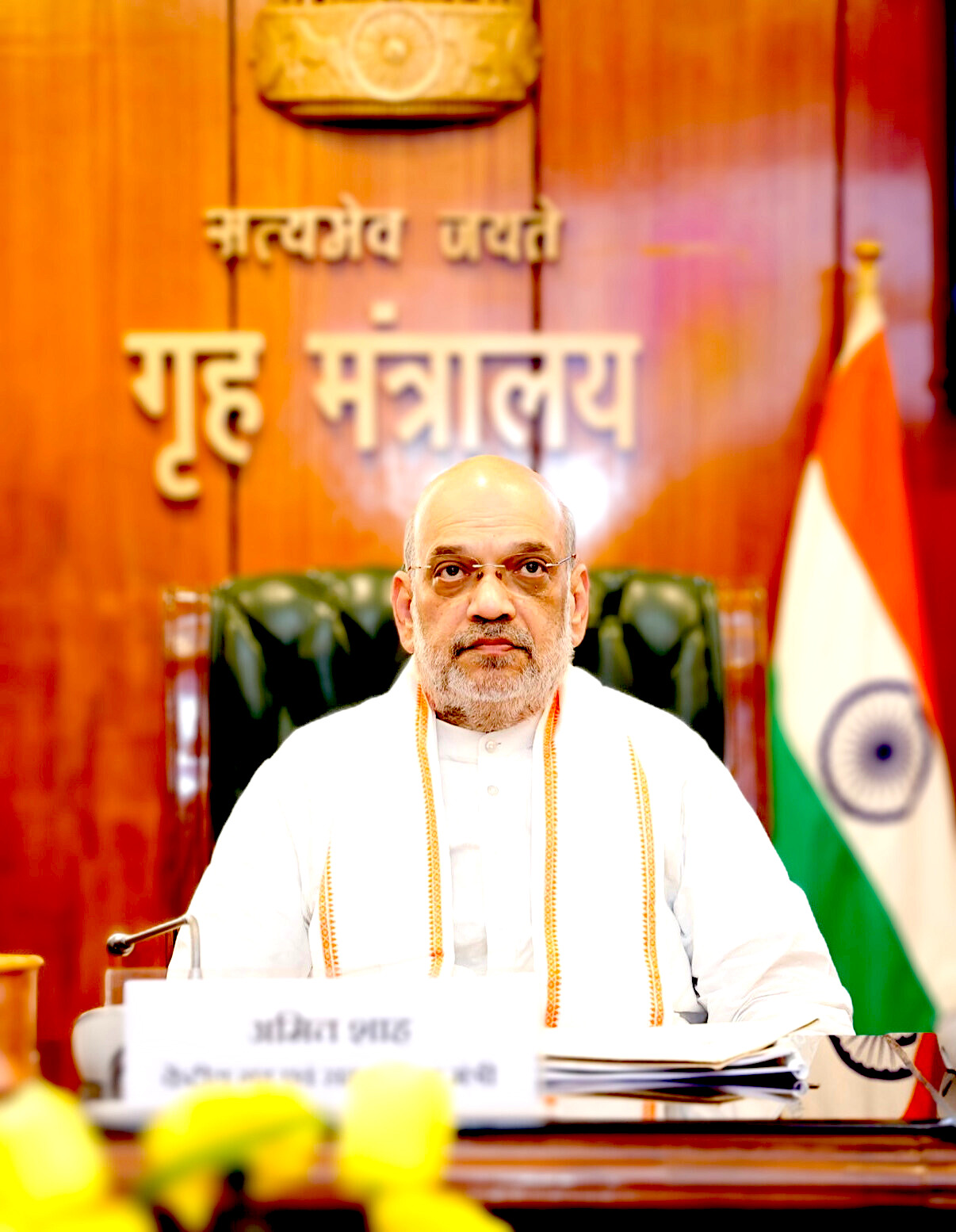The Modi government plans to try the globally renowned author under a draconian anti-terrorism law

Arundhati Roy in 2012. (Vikramjit Kakati, Wikimedia Commons, CC BY-SA 3.0)

By Ullekh NP
Special to Consortium News
The move by India to prosecute its internationally acclaimed Booker Prize-winning writer Arundhati Roy under an anti-terrorism law over her remarks made 14 years ago on the country’s trouble-torn Kashmir region has raised serious questions about Indian democracy.
A section of local pundits sees this decision as a reckless message by the Modi government that the reverses it suffered in the recent general election don’t mean it will abandon its hardline nationalism.
The ruling, pro-Hindutva Bharatiya Janata Party (BJP) failed to get an expected absolute majority in the 2024 general election, making it dependent on regional partners in a rainbow coalition. The wider expectation was that the BJP would now go slow on its Hindu-first policies and soften its stance against dissidents. The poll results, which trailed forecasts, rattled Prime Minister Narendra Modi.
Delhi state’s Lieutenant Governor VK Saxena gave the police sanction to prosecute Roy and former Central University of Kashmir professor Sheikh Showkat Hussain under the Unlawful Activities (Prevention) Act, or (UAPA), on June 14.
UAPA had been in force since 1967 as an anti-terrorism law, but in August 2019, the Modi government made it more stringent, amending it to “include the provision of designating an individual as a terrorist.” Before that, only organizations could be designated as a terrorist organization.
Several opposition parties have attacked the amendment saying the new law lacks provisions to check misuse. The legislation has also come under criticism for its low conviction rate.
It has been challenged by various people in the Supreme Court, the country’s top court. Article 19 of the Indian Constitution provides a right “to freedom of speech and expression.”
However, in February this year, individuals and groups that had challenged the constitutional validity of its provisions withdrew their pleas.
Delhi’s lieutenant governor’s office said in a statement:
“Roy and Hussain had allegedly made provocative speeches at a conference organised under the banner of ‘Azadi – The Only Way’ on 21.10.2010 at LTG Auditorium, Copernicus Marg, New Delhi. The issues discussed and spoken about at the conference propagated the ‘separation of Kashmir from India.’”
Interestingly, the first information report (FIR), a document prepared by the police based on information they have as soon as they learn of any cognizable offence, was registered on Nov. 27, 2010, at New Delhi’s Tilak Marg Police Station.
Charged for 2010 Comments on Kashmir

Indian police in Kashmir Valley confronting protesters in December 2018. (Tasnim News Agency, Wikimedia Commons, CC BY 4.0)
It was drafted under orders of the Court of Metropolitan Magistrate, New Delhi, based on a complaint by a social activist named Sushil Pandit who charged Roy and Hussain with making provocative speeches at a seminar held on Oct. 21, 2010.
An Oct. 25, 2010 report by India’s premier news agency, Press Trust of India, said that Roy had stated in the seminar that Kashmir had never been an integral part of India. “It is a historical fact. Even the Indian Government has accepted this,” she was quoted as saying in the report.
Neither Roy nor her attorney responded to a request for comment.
The government’s action against Roy, 62, has been condemned by Indian civil society activists, opposition parties, writers, peace experts and lawyers.
Sumantra Bose, political scientist and author of Kashmir at the Crossroads: Inside a 21st-Century Conflict (2021) has hit out at the federal government. “This shows yet again how endangered the right to freedom of speech is in India today,” he told Consortium News.
The Modi government’s 2019 revocation of Jammu and Kashmir’s special autonomous status and separate constitution (upheld by the Supreme Court in 2023) sparked a crisis in the region, about which Bose said:
“Almost five years after the second Narendra Modi government railroaded the Jammu and Kashmir Reorganisation Act through Parliament in August 2019, it is difficult to find more than a smattering of individuals in the liquidated and dismembered state who are happy with the regime inflicted on them.”

Modi giving an address in Indore, January 2023. (MEA, India, Flickr, CC BY-NC-ND 2.0)
He added that, most remarkably, those unhappy include the Buddhists of eastern Ladakh and large sections of Jammu Hindus. “The post-August 2019 regime has institutionalized repression and fear, especially in the Kashmir Valley, and deprived all the people and communities of the erstwhile state of any semblance of representative institutions and accountable government,” he said.
Bose, a professor at the London School of Economics, said the post-August 2019 regime in the Union Territories of Jammu & Kashmir and Ladakh engineered by Modi and his “chief henchman-cum-enforcer” Amit Shah, minister of home affairs, is run by bureaucrats sent by New Delhi. “Its extreme securitization of the Kashmir conflict represents authoritarianism at its worst,” he said.

Amit Shah chairing a meeting in New Delhi on Monday. (Ministry of Home Affairs,
Wikimedia Commons, GODL, CC BY 4.0)
For her part, Radha Kumar, who had served as an interlocutor appointed by the government for Jammu and Kashmir from 2010 to 2011 and has worked in various parts of the world to bring peace to troubled areas, told Consortium News that using the UAPA law against anyone for a speech or even many speeches is a gross violation of freedom of expression, unless there is proof the speech led to actual violence.
An alumnus of the University of Cambridge, Kumar, whose specialisations include ethnic conflicts, peace studies and conflict resolution, said:
“Sanction given more than a decade after the speech is dubious, to say the least. Given that there are BJP MPs who have made speeches inciting violence but have not been prosecuted, the bias is evident and very serious.”
Roy, who shot to global fame in 1997 following the publication of her debut novel, The God of Small Things, which won the Booker Prize for Fiction, has been a relentless social and political activist since then, courting controversies and earning the wrath of right-wing politicians.
Vocal Critic of Modi & Hindu-First Policies
She has also been vocal in her criticism of Modi, his friends in the corporate world, and the Hindu-first policies pursued by the Modi dispensation. She has penned several widely read essays over the past three decades criticizing the establishment and policies on Kashmir, environmental issues and right-wing politics.
Lawyers in India, too, are piqued at this decision.
Avani Bansal said she sees a clear political bias in the sanction given by Delhi’s lieutenant governor to prosecute Roy. Bansal, a lawyer practising in the Supreme Court of India, argued:
“First, it remains unexplained why the prosecution is taking place after 14 years of the speech made by her. Secondly, the Delhi Police had done some necessary investigations in this case after the speech and found no basis for any legal action. Thirdly, there is a series of judgements by the Indian Supreme Court that lays down that mere dissent or difference of opinion with that of the central government cannot be a ground to suggest ‘sedition’ (Rajat Sharma vs. The Union of India Case, 2021).
Finally, for a legally valid prosecution, under Section 124A, 153A, 153B and 505(2) of the IPC (Indian Penal Code), it is necessary to show that the words written or spoken, or signs or visible representation, have the tendency or intention of creating public disorder or disturbance of public peace by incitement to offence (Kedar Nath Singh vs. State of Bihar, 1962).”
Bansal affirmed that Roy’s speech at a seminar in 2010 did not have any such effect as stated above. That Roy showcased her views on Kashmir to create public disorder is an extreme exaggeration at best, Bansal told Consortium News.
“The Indian government under Modi should not crush its dreamers. Doing so will be the death of democracy itself,” said Bansal, an alumnus of Harvard and Oxford universities. “Writers are dreamers who, through their words and thoughts, show us visions of all kinds. This is what keeps our constitutional spirit alive.”
This year, Modi and his team fought the elections on the back of Hindu majoritarianism and national populism and expected a landslide win, a mandate that would have made it powerful enough to rewrite the Constitution of India and put India on the path of absolute rule.
That didn’t happen. And now this has.
Ullekh N.P. is a writer, journalist, and political commentator based in New Delhi. He is the executive editor of the newsweekly Open and author of three nonfiction books: War Room: The People, Tactics and Technology Behind Narendra Modi’s 2014 Win, The Untold Vajpayee: Politician and Paradox and Kannur: Inside India’s Bloodiest Revenge Politics. His forthcoming book on Cuba, part travelogue and part political commentary, is due for release in November 2024.
poorly researched piece by a leftist hack. Brainwashed output that pretends to search for a middle ground but gives the game away with conscious bias.
LikeLike
these are guys who should be on the lunatic fringe. It is the tragedy of our country that the lunatic fringe occupies the mainstream.
LikeLike
The writer is a well known leftist acolyte from Kerala. His leftist propaganda still clearly finds imaginary traction.
LikeLike